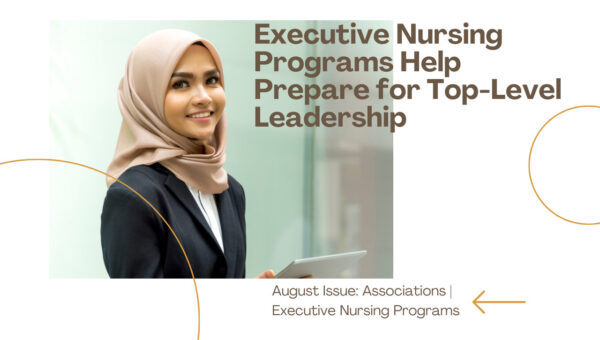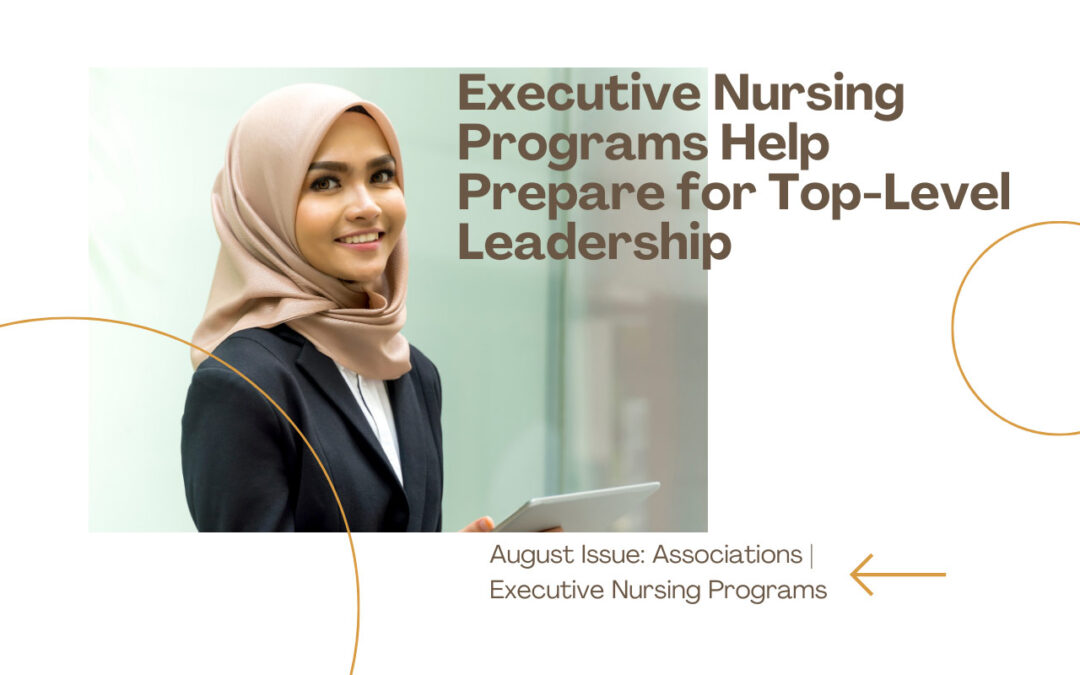You may not naturally think of becoming a nurse executive, which may seem far removed from the bedside and benefiting patients. Yet, you can significantly impact patient care as a nurse executive, such as a chief nursing officer.
“When you’re caring for patients, as a nurse, you’re caring for a set cadre of individuals,” says Elizabeth Speakman, EdD, RN, FNAP, ANEF, FAAN, senior associate dean, professor, and chief academic officer, School of Nursing, University of Delaware. “When you’re in a leadership role in the clinical environment, you may have thousands of patients you are responsible for.”
If that appeals to you, read on. In this article, we’ll examine a few programs available to prepare for the nurse executive role.
Preparing for Opportunities
Executive leadership is one of four specializations offered within the Doctor of Nursing Practice (DNP) program at Post University’s American Sentinel College of Nursing and Health Sciences. The program covers leadership, business intelligence, finance, health policy, and health services research.
Students at the 28-month program “typically come with a master’s degree already and have some experience at a leadership level,” according to Kimberly Nerud, PhD, RN, dean at Post University’s American Sentinel College of Nursing and Health Sciences. Perhaps they have worked as a charge nurse or directed a healthcare unit, and “they’re looking to build on those skills that will help prepare them for those advanced opportunities within a healthcare system.”
At the Frances Payne Bolton School of Nursing at Case Western Reserve University, students who want to pursue a role as a nurse executive can choose from a range of programs, according to Joyce J. Fitzpatrick, PhD, MBA, RN, FAAN, Elizabeth Brooks Ford professor of nursing, Frances Payne Bolton School of Nursing and distinguished university professor, Case Western. Those programs include a doctoral program with an executive focus and a postdoctoral and senior executive program. These programs are housed within Case Western’s Marian K. Shaughnessy Nurse Leadership Academy.
Although students need a doctoral degree to enter the postdoctoral program, for instance, the academy believes that “every nurse is a leader,” notes Dr. Fitzpatrick. “Our philosophy is you’ve already got the leadership skills. You may not know how you have been leading, but you have been leading as a clinical nurse.”
For example, Dr. Fitzpatrick notes, “Nurses are leading care at the bedside for the patient. They’re leading care for the patient’s families. So as they become nurses, they learn to lead in clinical care. We capitalize on the experiences they’ve already had as clinical nurses and help them to understand how they’ve been leading all along.”
The school emphasizes a relationship-based leadership model, according to Dr. Fitzpatrick. That includes components such as communication, executive presence, intentional communication, and helping the leader understand any individual’s influence in a leadership role.
The academy, says Dr. Fitzpatrick, is especially interested in identifying individuals to join the program who come from under-represented groups. The school also seeks to engage minority nurses in mentoring the next generation.
“Stackable Credentials”
According to Dr. Speakman, nurses considering executive leadership positions can benefit by focusing on two actions. First, “they need to know that leadership is not just your title. Leadership can be very informal. How you lead is more important than your position. How you hold yourself pedagogically in life and how you present yourself. I think that’s the first and foremost conversation.”
The second involves earning what Dr. Speakman calls “stackable credentials.” That can include fellowships, earning certificates, and joining leadership programs – gaining new skills. Another word of advice: “Before you decide you want to be the top executive, spend time with the top executive.”
Leading After COVID
In considering a role as a nurse executive, know that COVID took a toll on nurse leaders, making the need to prepare nurses for executive roles even more important. Dr. Nerud hopes that “we can help to rebuild that area of nurse leadership that decided to take a step back or step out or retire early because of all of the demands that came from the pandemic.”
Dr. Nerud stresses the need to have nurse executives view problems from a policy perspective “that we’re helping these leaders go in to help be able to think fast and be able to talk about the policies that need to be made to move quickly because we learned during the pandemic that that was huge. We needed to be able to focus on quick changes and quick policies and quick things that needed to happen.”
During the pandemic, leaders faced significant challenges, notes Dr. Fitzpatrick, as did clinical nurses. “We need to continue recruiting nurses into leadership roles because the challenges are still there,” she says.
Even though the worst of the pandemic is over, we still have to rebuild and revitalize the clinical systems,” says Dr. Fitzpatrick. “We want to be sure that we focus on nurses staying in the workplace, which falls to the leader. We know from the research that if you have good leaders, you have higher nurse satisfaction–that leadership is key to keeping the clinical nurses engaged.”
“There is No Box”
Nurse executives and leaders have opportunities in traditional healthcare systems, industries, and corporations. “We shouldn’t just think of nurse leaders being positioned in the traditional healthcare environments, but engaging them outside of the traditional healthcare environments into executive positions in corporations as well as in community health,” says Dr. Fitzpatrick.
“The potential is unlimited because nurses come with skills that help them to help others. I like to teach my students, we often talk about thinking outside the box, but what we try to communicate to our nurse leaders is there is no box.”
Sign up now to get your free digital subscription to Minority Nurse.
- Meeting Mental Health Needs - April 25, 2024
- Nursing Informatics: Connecting Tech with Care - March 22, 2024
- Practical Strategies for Implementing Evidence-Based Practice - February 22, 2024



